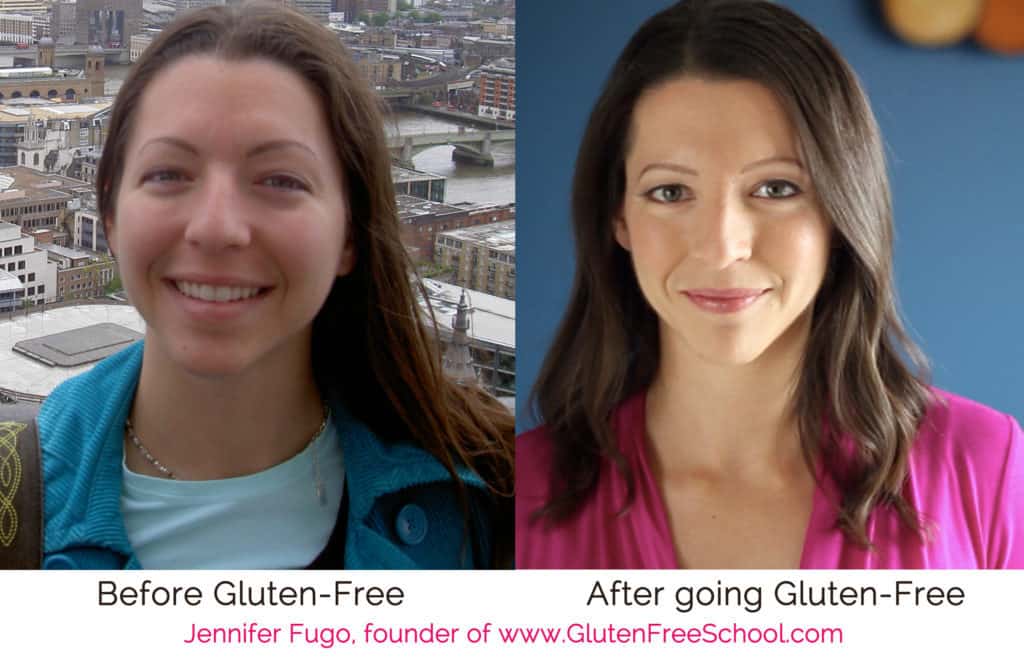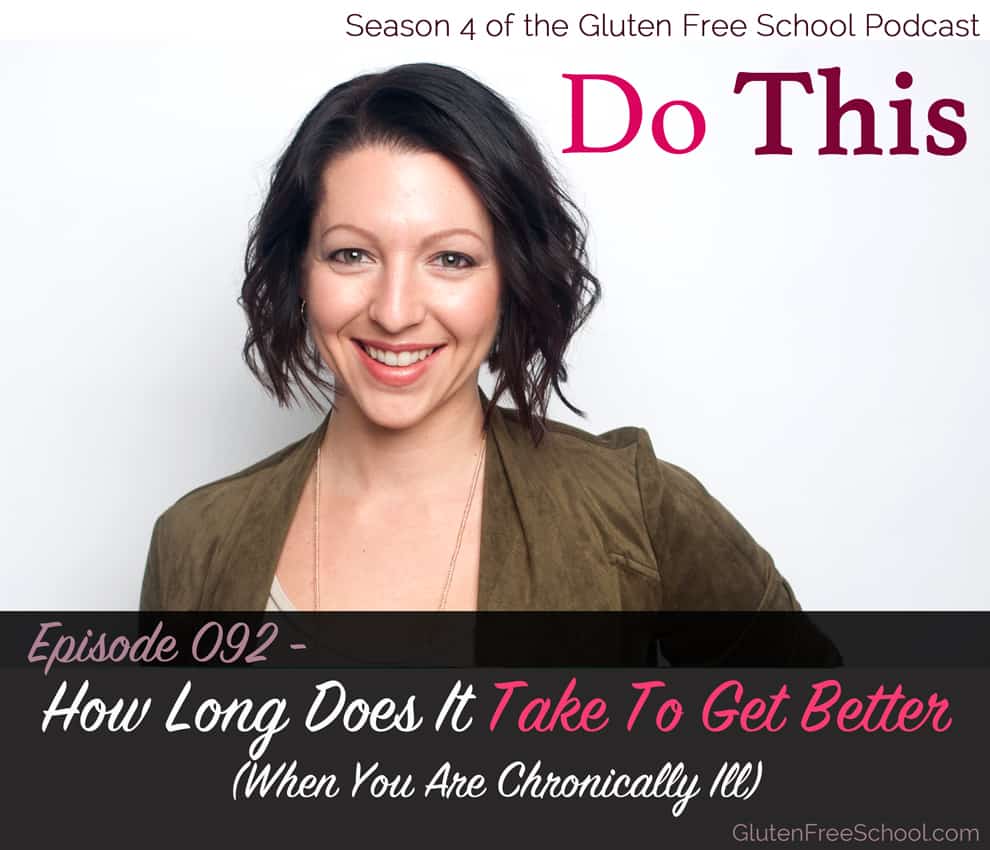
I never wondered how long does it take to get better when I figured realized I was sick.
Back in 2007, I felt like I was an elderly person. I didn’t feel like myself and knew inside that something was very wrong. Doctors told me that I was fine. Maybe I needed some B vitamins or to work out less…
But none of that answered the question about why I had this hodge-podge of symptoms that didn’t make any sense.
 My before and after photo is pretty stunning for most to see because I had so much inflammation in my face before figuring out what was going wrong.
My before and after photo is pretty stunning for most to see because I had so much inflammation in my face before figuring out what was going wrong.
Years later, I’m often asked questions about my own healing journey.
“Jennifer, how long does it take for ______ to get better?”
And I intentionally approach this question with caution for one specific reason — the person asking usually wants to assume that my underlying root causes and healing timeline will be the same for them.
That’s not the right way to go about looking at your health and subsequent healing. And frankly, it’s potentially detrimental to your long-term success.
People can have the same symptoms, but have very different underlying root causes.
You can also have the same underlying root causes, but heal at very different rates.
I say this to point out that this is where someone who is chronically ill can get into trouble. It sets an unhealthy expectation based on an unfair comparison.
See, I had no idea where the former sick me would end up. I didn’t have any expectations of weight loss or stopping my daily headaches. I just wanted to have more energy and not constantly be so sick to my stomach that I would be moments from crapping my pants.
It took me 3 months to lose 10 pounds of inflammation weight… and another 3 to lose almost another 10.
By no means would I categorize that as fast.
Sure, I noticed a big improvement in my urgency to use the bathroom because I’d removed the food triggers. But beyond that, it took months to see the many scaly rashes disappear.
So if you want to know what the lesson here is… be unrelentingly cautious in how you manage your expectations.
How long does it take to heal your leaky gut?
 Resolving leaky gut means you know all the factors that are compromising gut health in the first place.
Resolving leaky gut means you know all the factors that are compromising gut health in the first place.
Do not assume that just because your symptoms are identical to someone else that you have the same exact issues.
If your case isn’t too complicated, the average time to resolve leaky gut is 6 to 8 weeks.
If you’re not getting better, you’ve probably missed something.
That’s why those DIY leaky gut programs often don’t work. I’ve talked about this on the blog before (HERE). They aren’t set up to address gut infections.
If you’ve got SIBO, it can take a long time to heal and many different trial and error treatments.
One factor that’s key to know is if you have hydrogen or methane-dominate SIBO. Here’s another excellent piece walking you through the many possibilities to consider.
How long does it take to rebuild healthier skin when you’ve got eczema?
 Skin is a low priority organ. So your body will steal nutrients away from it in order to maintain other parts of your body.
Skin is a low priority organ. So your body will steal nutrients away from it in order to maintain other parts of your body.
Skin is formed from the innermost layers slowly working themselves out. It takes 4 weeks on average just for that newest layer to make it to the top.
If triggers still exist in the gut or you’ve got nutrient insufficiencies, you have to be on a serious road to recovery before healthy new skin is going to be formed.
You’ve got to have a higher protein intake than normal because your body is doing the heavy lifting to rebuild what’s been historically compromised.
I didn’t see a significant improvement in my skin until about 3 months into my healing protocol. At 6 months, the flares cycle stopped. At about 9 months, I noticed the skin becoming much more normal and calm. And after about 12 months, I had the skin at about 85% healed.
I used THESE RECIPES to help me start my day with the right nutrition while avoiding some of the most common trigger foods!
How long does it take to lose weight?
 You cannot fight your thyroid.
You cannot fight your thyroid.
If that’s out of balance, you’ll need to address that first. So if you’re struggling with hypothyroidism or Hashimoto’s, you really need to get that under control first.
Your thyroid is in charge of regulating weight loss and weight gain.
You cannot out-exercise and out-diet your thyroid.
If you’re overweight, the average healthy weight loss is between .5 and 1lb per week.
If you’re obese, the average healthy weight loss is 1 to 2lbs per week.
You may see an initial weight loss drop due to the removal of inflammatory foods or exposures. After that, don’t be surprised if weight loss slows to the average healthy pace I’ve just mentioned.
Things to keep in mind…
- Your body will heal at its own pace based on the unique factors that make up who you are.
- You should never compare your healing journey to someone else’s.
- When you feel disappointment, find out first if your reaction is reasonable. (Oftentimes, it’s not.)
- For every year that you’ve been sick, it can take one month’s worth of healing (but this is not a hard rule). So if you’ve been sick for 10 years, you should expect to be working hard for at least 10 months.
- Every step has to be taken in an intelligent way.
- You have to be consistent with the actions that you take.
- And if you’re still struggling, reach out for help so that you can get on the path to feeling better sooner.







Hi, it took my daughter almost 3 years. We are gluten free from January 2016. She was getting angry, annoyed and couldn’t concentrate. Now she is just a different person. I’m so happy about thats
Ania, thank you so much for sharing this experience here! I appreciate it because it helps people see that while I wish this was a fast process, it can (and often does) take time. And that’s helpful when managing your own expectations so that you don’t lose steam along the way. I’m so happy for the positive change your daughter has experienced!!!